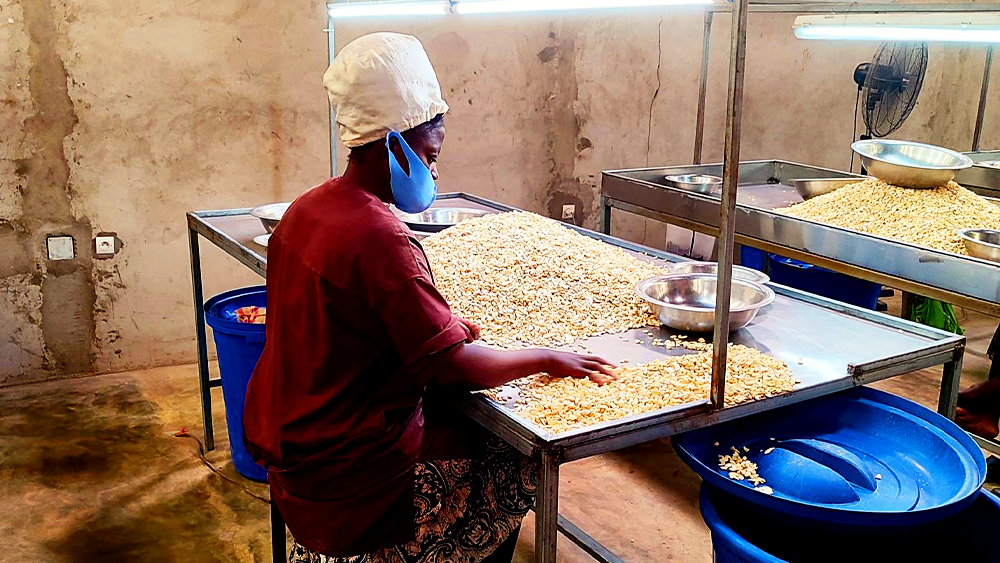SSNUP project completion: food safety certification for a cashew nut processor in Togo

Cajou Espoir is one of the few African cashew nut processors and the only company that processes raw cashew nuts in Togo. It sources the nuts from 1,500 smallholder farmers in northern and central Togo. In addition to processing locally, the company buys cashew nut kernels from the farmers under favourable conditions, shares profits and guarantees market prices, thereby strengthening the African cashew value chain.
Despite being recognised as a key West African supplier by European and US buyers, Cajou Espoir saw the need to obtain an internationally recognised food safety certification such as BRC to remain competitive and to safeguard its access to these markets. The BRC Global Standard for Food Safety is the leading global certification and consumer protection scheme recognised and required by traders, retailers, and customers worldwide. It is key to global market access.
Impact investor responsAbility put in place a project co-funded by SSNUP to help Cajou Espoir meet all the requirements in terms of Hazard Analysis Critical Control Points (HACCP), quality management, site standards, product controls, process controls and staff management, which all required extensive documentation and capital expenditure.
As a result of the project, Cajou Espoir now has up-to-date, standardised documents, such as product specification sheets, which can be shared with international buyers. The factories and transportation equipment were also significantly upgraded to meet BRC standards.
In addition, more than 1,000 factory workers were trained on the new procedures, including pest control, hygiene and sanitisation. This ensures the quality of the processed cashew kernels, improves operational efficiencies and mitigates food safety risks at both processing factories.
Thanks to the project, Cajou Espoir is now Togo’s only BRC-certified enterprise. This unique status is expected to improve the reputation of local suppliers, secure contracts with reputable buyers, increase market access and create export opportunities, thereby stimulating employment and driving economic development. As a result of the certification, an additional buyer had already been onboarded upon completion of the project.
Lessons learnt
This project was complex, necessitating extensive time for an in-depth review of the company’s processes and substantial capital investments to upgrade the premises to BRC standards, all in remote areas of Central Togo. Therefore, any project covering such a complex certification should allocate ample time and anticipate delays.
This complexity also required the project to be well managed with regular progress monitoring and a well-established action plan with identified priorities. These challenges were overcome by an experienced, local consultant who understood the context and the company’s limitations in terms of resources, expertise and qualified staff.